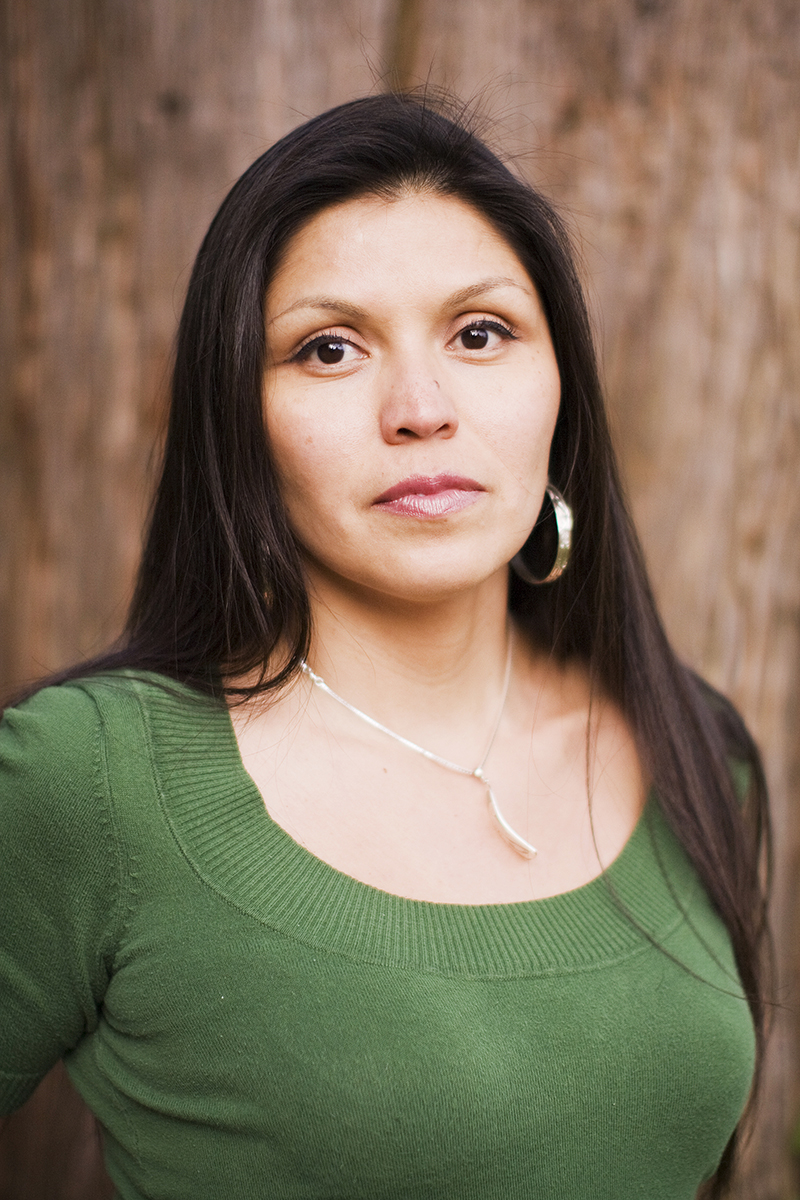Nicola Campbell is an Indigenous sessional professor at UFV with Nlaka’pamux (Thompson) and Syilx (Okanagan) ancestry on her mother’s side, and Métis on her father’s. She has lived in Sto:lo territory for 25 years, is a paddler (someone who races canoes), and currently teaches creative writing at UFV. She holds a Bachelor of Arts and a Master of Fine Arts in creative writing from UBC, and she is presently working on a PhD dissertation about Indigenous storytelling practices.
What brought you to UFV?
English department head Melissa Walter contacted me about teaching. I live close by, in Chilliwack, and I’ve been working on my dissertations, so it’s a nice break from the solitude of writing full-time and parenting.
Did you have an association with UFV prior to joining this semester?
During my undergrad I attended UFV for my first year. Then I switched to UBC and went into the Bachelor of Education program there, where, actually, I changed my program. There was a death in my family that was significant, and I took some time off. I went back and wanted to finish it, so I did creative writing, and that was when I published my first book.
While you were still an undergrad?
Yes. The actual release date was after I graduated.
What projects are you working on right now?
Two children’s books. One has a signed contract and is essentially complete aside from the editing and translation. It’s titled I Went Running. It was inspired by the children’s picture books I Went Walking and Brown Bear, Brown Bear, What Do You See? It explores my perspective as an Indigenous person on the land. The other is a children’s book about paddling and war canoe racing. It’s a multidisciplinary memoir of poetry and prose.
Can you provide a list of your current published works?
Shi-shi-etko and its sequel, Shin-chi’s Canoe, which received the TD Canadian Children’s award. My third book was Grandpa’s Girls, and my fourth is A Day With Yayah. In the next two years, my fifth and sixth books should be released.
I’ve also published in various anthologies and whatnot — mainly Indigenous anthologies. I don’t submit poetry very often for publication, unless I’m asked specifically to contribute a piece.
Can you give some insight into what you’re writing about for your dissertation?
In the works of Leanne Simpson and other Indigenous scholarly writers, they talk about the importance of resurgence. Not so much reconciliation, but about resurgence among Indigenous people.
In my younger years, during my undergrad, I was an avid reader of authors such as Sherman Alexie. There was one specific collection he published, and in there was a short story titled “A Train Is an Order of Occurrence Designed to Lead to Some Result.” In that story, the main character is a man who wakes up on his 60th birthday. He has never had a drop of alcohol in his life. He goes to work, he gets fired. He goes to visit his family, there’s a problem that occurs and they decide to shun him and abandon him. He goes to a bar, he gets drunk, he goes to a train bridge, he commits suicide. End of story. This had an impact on me. It made me question our roles and responsibilities as writers; myself, specifically, as an Indigenous writer. What are my responsibilities? What kind of stories do I want to tell? What kind of stories do I want my children to read?
I’ve been taught ever since I was young that our stories are powerful, that when we share our stories, they come to life. All that I am, as my elders have taught me, is a vessel. So, I had to ask myself, why did I find this story so deeply painful? So disturbing? And [I realized] it was from how many years I spent grieving, and how many years I spent working through my own trauma, as somebody who had witnessed and experienced and knew the level of violence that my parents, grandparents, and great grandparents experienced as a result of colonization.
The thing that became important to me is that I don’t tell those kinds of stories, that the only option is to commit suicide when we have our worst day. It’s lazy writing! There’s no excuse for it, to me. At the end of the story, what’s important to me is that I see my characters rise. That I see them grow some way, somehow, and transform themselves. When I look at certain stories by Indigenous writers, I see a tendency for characters to repeatedly go from one terrible, traumatic incident to another, and even the characters they turn to are just as disempowered or violent or introducing drugs or alcohol to cope. Whereas in real life, when we are struggling, we need to return to our traditional teachings.
This interview has been edited for length and clarity.
Image: Nadya Kwandibens of Red Works
Photo: Nicola Campbell


